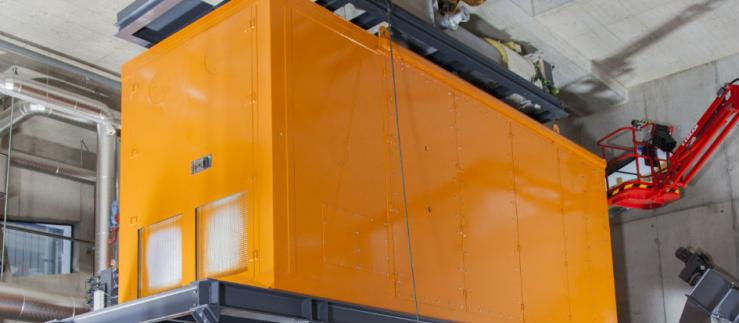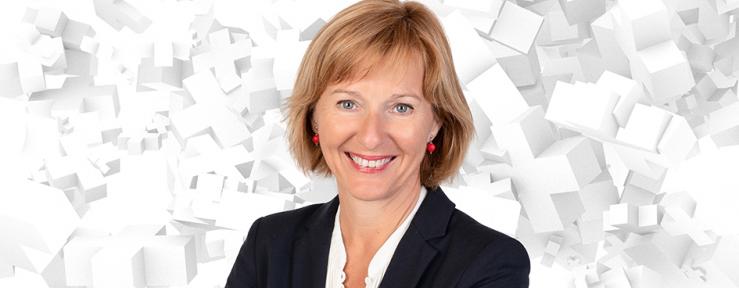Poland – the country with the highest air pollution in the European Union
According to a current ranking by the World Health Organization, seven of the ten EU cities with the highest levels of air pollution are in Poland. Furthermore, the ranking of the 50 EU cities with the poorest air quality includes 36 towns in Poland. The alarming situation is due primarily to the country’s heating systems. Łukasz Lepiarczyk, manager of Hoval in Poland, explains: “Approximately 50% of the heating market is supplied by heating energy companies, which produce energy primarily using solid fuels. These companies have to meet high environmental requirements and therefore consciously invest in modern solutions in the areas of combustion and exhaust filtering. The smog is due primarily to the remaining section of the heating market: outdated production operations and detached family homes. ”
People with old-fashioned stoves and solid-fuel boilers often still use waste and poor-quality fuels for heating. According to estimates, of the 5.5 million detached homes in Poland, around 80% are heated using aged stoves and solid-fuel boilers, and what’s more, around 150,000 of these boilers were sold every year before a corresponding ban was introduced in 2018.
Although the problem of air quality has been around for a long time, awareness among the population has grown only over the last few years. These days any weather forecast will also include information about the current levels of harmful substances in the air, and where values are high local authorities will sometimes authorize free use of public transport or urge children and older people not to go outside. On top of all this, Poland’s notorious non-conformity with air quality standards represents an infringement of EU regulations. The European Commission is monitoring the situation, and Poland faces high financial penalties if it is unable to conform.
“Clean Air” program – a total of 35 billion francs for improving air quality
Initial measures to battle the air pollution have been introduced in the past. EU funding was utilized for the modernization of many public buildings, for example, and individual cities offered subsidies to households willing to replace outdated heating systems, but there was no overall plan at a national level. It was for this reason that the “Clean Air” program was launched in September 2018. The program is geared towards owners of both existing family homes and new-builds, and provides for subsidies for thermal modernization and the installation of new heating systems to the tune of approximately 27 billion francs. Sixty percent of the funds will go towards subsidies and 40% will be paid out in loans. Including the self-financed share, the total investment is estimated to amount to almost 35 billion francs, and the program is supposed to last until 2029, whereby applications can be made throughout. Altogether, between three and four million family homes are due to benefit from the program.
To be eligible for funding, projects must have a minimum value of 1,900 francs, with the maximum amount set at 14,000 francs per project. The subsidies will amount to between 30 and 90% of the investment, with the level of funding dependent on household income.
The following solutions are eligible for funding:
- Boilers for solid fuels (biomass) – class 5 according to standard PN-EN 303-5
- Heat distributors
- Electric heating systems
- Air heat pumps
- Heat pumps that take in heat from the earth or water
- Gas-fired condensing boilers, oil-fired boilers, flue gas dischargers, gas/oil containers
- Room heating and sanitation installations
- Mechanical ventilation, including heat recovery
- Solar panels
- Micro photovoltaic systems
- Heat insulation
- Replacement of windows, doors, gates, garage doors
- District heating connections
- Energy audits
The solutions must meet minimum requirements, which are outlined in the program, for example boilers for gas fuels or heating oil must meet the requirements of minimum energy efficiency class A and heat pumps must conform to at least A+.
Krakow as a model pupil
Alongside the newly introduced national program, individual cities and municipalities already have their own initiatives in place. One shining example is the city of Krakow, which has been praised for its efforts by the highest monitoring body. The city has already banned sales of the poorest quality coal and wood, and from September 1, 2019 heating using these substances will also be prohibited. The city began subsidizing replacement of heating systems back in 2012, and between 2012 and the end of 2018 it was able to replace 22,500 of the outdated coal-burning stoves and boilers. In December the city purchased 1,530 air purifiers for public nurseries, kindergartens and schools, and during this time a total of 13,500 sets of smog masks were distributed to senior citizens’ clubs, parent groups and clinics. In December 2018 the city council, with the approval of its residents, decided to introduce a zone for “clean transport” in the tourist district of Kazimierz, which only emissions-free vehicles can enter.
Market opportunities for Swiss technologies
Some Swiss cleantech companies are already represented in the Polish market. Alongside Hoval, for example, Belimo, CTA, Kabe, Stadler Form and Zehnder are all present.
The manager of Hoval in Poland, Mr. Lepiarczyk, points out: “The crucial thing is education and raising awareness among homeowners. Hoval has for a long time been working with local authorities in Poland with the aim of improving air quality.”
Janusz Staroscik, chairman of the association of importers and producers of heating systems, comments: “The battle against smog is the number-one topic in Poland and will remain so over the next ten years. Swiss solutions in the area of cleantech enjoy an outstanding reputation in Poland, and various support programs are offering them new possibilities in the market.”
Staroscik emphasizes that even before the program’s launch, there was already a noticeable upswing in the market for heating systems. The years 2017 and 2018 were exceptionally good for the entire installation and heating industry in Poland, with sales figures for both the categories of “new systems” and “replacement of old systems” rising considerably. What’s more, the category of “replacing old systems” has been on the rise since 2017. The most frequently used appliances in Poland remain solid-fuel boilers, but it’s looking likely that no more coal-burning boilers will be sold in future. Thanks to the ever greater popularity of energy-efficient construction, sales of heat pumps have been rising for some years, and there is expected to be an increase in hybrid heat pump systems with external power sources based on renewable energies. Thanks to community projects that make use of the EU’s regional funding programs, solar panels are also being used more frequently, in addition to which, use of photovoltaic modules is also increasing.
A detailed market situation of the heating systems in Poland was presented in the report by the association of importers and producers of heating systems. The full report is available in English here.
Would you like to benefit from the developments in the Polish market? CONTACT OUR CONSULTANT KATALIN DREHER NOW!





